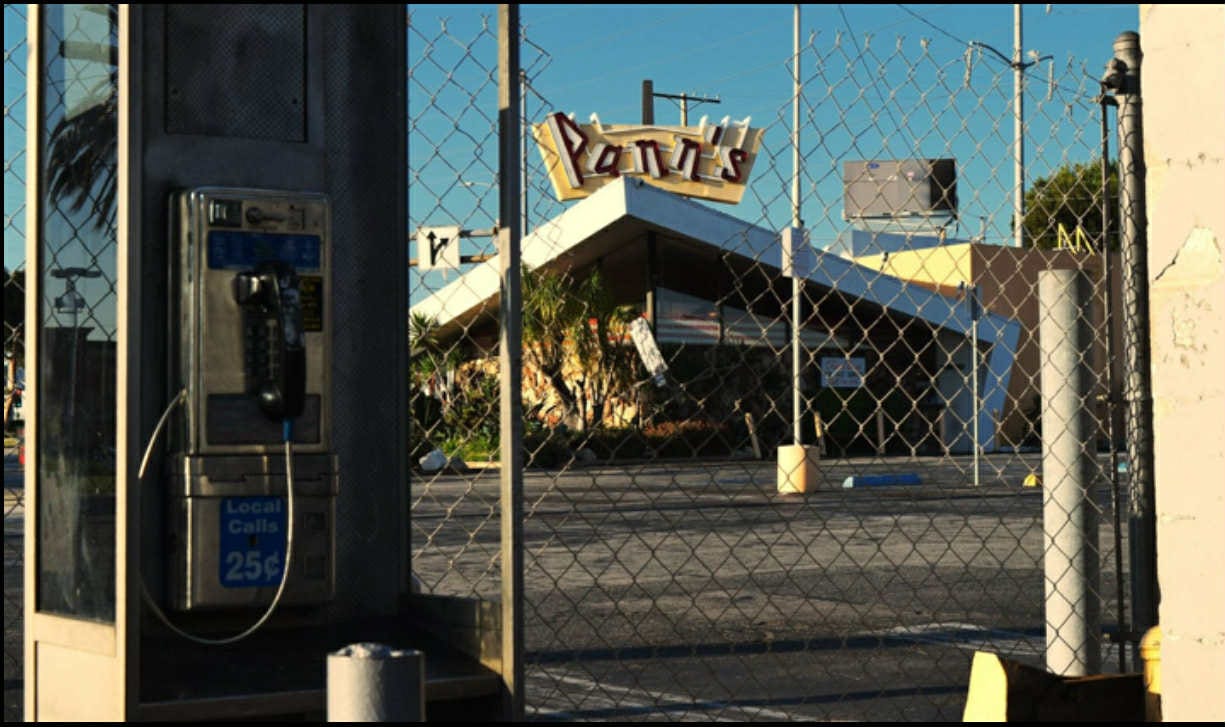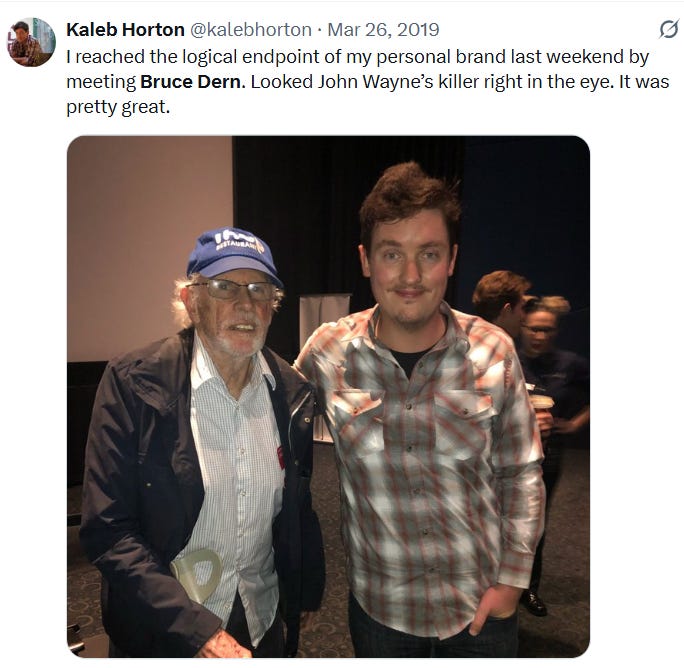Kaleb Horton
David with a few words in memory of the writer and photographer
(photo by Kaleb Horton “Los Angeles, California” 2025)
We were stunned to learn over the weekend that Kaleb Horton—the journalist, photographer, podcaster, comedy writer, critic and more—has died. He was only 37, but he was an old soul.
Neither Charles nor I knew Kaleb very well. But though our interactions with him were limited to emails and direct messages, we were tremendous admirers of his humor and smarts, and of his writing. If you’ve never read any of the Horton features and essays linked below, we envy you that first encounter. Simply put, Kaleb Horton was one of the best, funniest, most distinctive writers working this century.
In our interactions through the years, he and I bonded most over our shared love of old country music. I once helped hook him up with an old Country Song Roundup feature on Stoney Edwards, for example, because he was hoping to pitch a story on the country singer to one of his editors. And I first encountered Kaleb when he reached out to me about a book I’d written about another of shared hero, Merle Haggard. The in-memoriam Kaleb wrote when Merle died in 2016, and which he later expanded with a new introduction, was brilliant and touching and, characteristically, personal. “When Johnny Cash died, it was like part of the American landscape vanished, like we lost the Grand Canyon,” he wrote. “But when Merle Haggard died, speaking as someone born in Bakersfield and descended from Okies and Arkies who knew exactly what the Dust Bowl was, it was like losing a member of my immediate family, like there was one less place to set at my grandma’s table.”
Tackling loss was his great subject, I think. Both his writing and photography often centered upon an America that was fading away, a world of road-side attractions left to rot, of crumbling motor courts the interstate had made unnecessary decades ago, of decrepit fast-food joints somehow still hanging on from southern California’s shiny mid-century. Places like “Bill’s Burgers in Van Nuys. Been there since the ‘60s. Surrounded by mechanics. It’s the best cheeseburger I’ve ever eaten.” Or L.A.’s only remaining Pioneer Take Out fried chicken joint, where “all the fixtures are original, and you get the sense that when the fixtures break, that’ll be the end, like Willie Nelson’s guitar.”
Though a young man, Kaleb was drawn to writing about old things like that. Not in a those-were-the-good-old days sense but more like: How did this manage to stick around as long as it did? And isn’t it charming but also a little scary but still mostly charming? And won’t it be sad when even memories of it have passed away? He wrote about the novels of Charles Portis, about George Harrison and Formula One, about his friend Norm McDonald, with whom he shared an appreciation for the self-consciously corny though his own work on the page was more often understated. Considering Clark Griswold, for example, Chevy Chase’s character in National Lampoon’s Vacation, Kaleb observed: “He’s driven exclusively by pride and self-interest; the man has no moral compass. But he gets by.”
Kaleb told great stories—check out his epic rendering of the 1976 Chowchilla school bus kidnapping—and he loved James Garner and The Rockford Files, wrote about Bob Newhart, and shared a photo of himself standing proudly next to Bruce Dern. He loved hanging out with old people, his beloved grandparents especially, and it just seems like everything must be broken now that he won’t ever get to ease into being a codger himself. “I wonder what Kaleb would have written about this?” is a question a lot of us will be asking for the rest of our days.
When David Lynch died earlier this year, at 78, Kaleb wrote a remarkably deep remembrance called “Death Is Just a Change.” To paraphrase that essay’s opening lines… Kaleb Horton has gone on to whatever the next place is. I’m very sad about it.
If you like what you’re reading here, please think of subscribing to No Fences Review! It’s free for now, although we will be adding a paid tier with exclusive content soon. Also, if you’d like to support our work now, you can hit the blue “Pledge” button on the top-right of your screen to pledge your support now, at either monthly, yearly, or founding-member rates. You’ll be billed when we add the paid option. Thanks!




